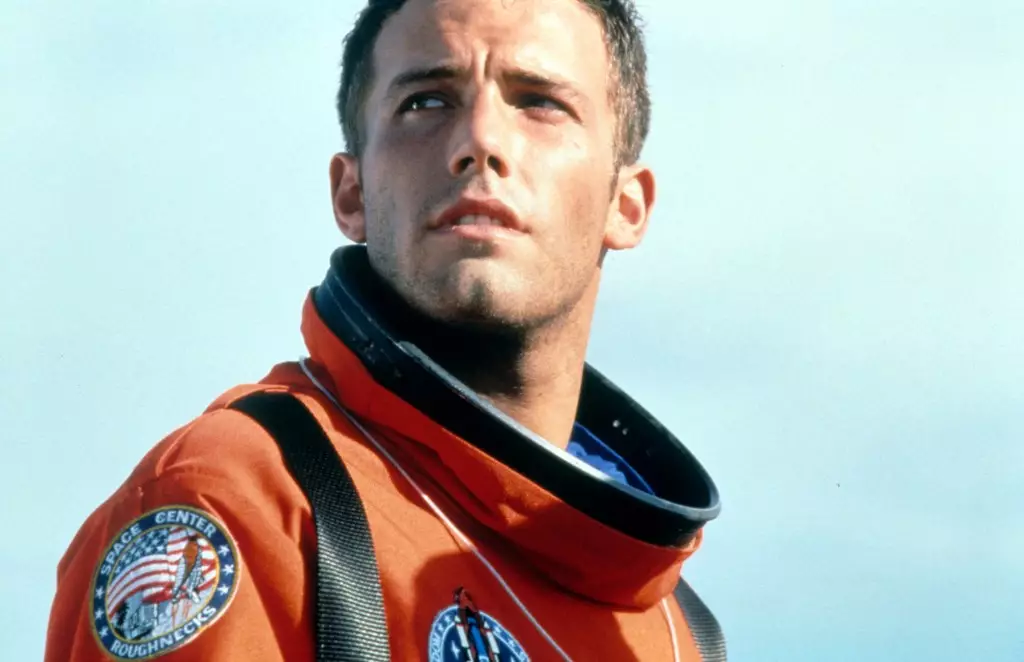In a recent candid interview with GQ, Ben Affleck, the multifaceted actor and director, took the opportunity to dive deep into the peaks and valleys of his lengthy career. With the film industry notorious for its fluctuating fortunes, Affleck’s reflections provide a window into the mindset and evolution of a significant figure in contemporary cinema. His openness about past disappointments, particularly the much-maligned “Justice League,” contrasts sharply with his unabashed pride in what might seem like an unconventional highlight: commentary for the 1998 Michael Bay blockbuster, “Armageddon.”
The stark duality of his professional experiences serves as a reminder that success in Hollywood is rarely linear. Affleck readily admits that on the set of “Justice League,” he wasn’t truly himself, hinting at an emotional struggle during production. This honesty is refreshing; too often, actors choose to gloss over their challenges in favor of maintaining a polished public image. It’s as though he is inviting fans to empathize with him, a reminder that their beloved stars are often battling their own demons behind the scenes.
The Unexpected Triumph of “Armageddon”
One might wonder how a DVD commentary rose to such prominence in Affleck’s career narrative. Yet, it speaks volumes about the charm and unpredictability of Hollywood. Affleck hasn’t just accepted this commentary as a fleeting moment; he genuinely revels in it. He boldly states that it is one of the top five greatest commentary tracks, suggesting a personal criterion that transcends mere commercial success. In a world that often prioritizes blockbuster numbers over authentic creativity, Affleck’s self-awareness prompts a broader conversation regarding what constitutes a peak in an actor’s journey.
His commentary reflects both irreverence and vulnerability, signaling to audiences that he doesn’t take himself too seriously, even while grappling with the pressures of stardom. He divulges amusing anecdotes, such as his spirited exchange with Michael Bay, starkly illustrating the clash of creative minds. Bay’s prompt to Affleck to simply “shut the f**k up” encapsulates the often chaotic dynamics endemic to big-budget filmmaking, reminding us that humor often serves as a coping mechanism in stressful environments.
Understanding Cinema’s Absurdity
What’s particularly fascinating in Affleck’s insights is his realization that Hollywood sometimes prioritizes spectacle over sense. His recollection of Billy Bob Thornton lamenting the lack of logical coherence in action films encapsulates the larger issues in cinematic storytelling today. “Fuck it, we don’t have to do that” may appear to be a defeatist mantra, but it resonates as a genuine acknowledgment of the absurdity that permeates high-stakes filmmaking.
Such admissions not only reveal Affleck’s awareness of film’s entertainment factor but also his identification with the “salt of the earth” mentality he mentions in his commentary. This perspective offers a refreshing take, showing that genuine storytelling is about connection, not just flawless execution. Through this lens, Affleck’s perspective on character roles transforms from mere performances into narratives laden with real emotion and life experiences.
Rejecting the Superficial
As Affleck continues to navigate his career choices, his willingness to speak on past missteps and triumphs invites an essential dialogue on authenticity in the industry. In an era rife with social media scrutiny and incessant public judgment, his reflections encourage self-acceptance and resilience. There’s a profound power in admitting vulnerabilities—an act that resonates not just with fans but also with fellow artists who often feel the pressure to present a flawless exterior.
His introspection showcases the evolutionary process of a performer who evolves from participating in cinematic spectacles into crafting deeper, more meaningful art. By confronting his difficulties and celebrating his unexpected victories, Affleck embodies a more genuine representation of what it means to be an artist today: It’s about growth, authenticity, and the unabashed expression of one’s self in a sometimes nonsensical world.
Through this lens, we catch a glimpse of Ben Affleck as not merely a Hollywood star but as a relatable figure navigating the complexities of fame, artistry, and the relentless pursuit of personal truths.
